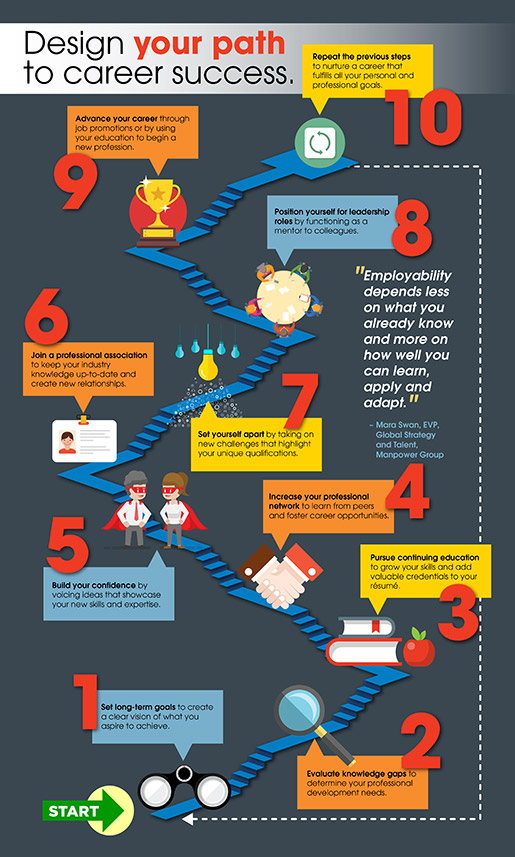When I first entered the professional world, I thought I had it all figured out. I had completed my education, secured a job, and was ready to climb the corporate ladder. But as the years went by, I realized that simply going through the motions wasn’t enough. I needed a plan, a roadmap to guide me towards long-term success. And so, I set out to create a career roadmap – a set of goals that would drive me towards the fulfilling and successful future I desired.
Setting goals can be a daunting task, especially when it comes to something as big as your career. But it’s the first step towards taking control of your professional life. So, how does one go about creating a career roadmap? Here are some insights and strategies that have helped me along the way.
1. Reflect on your values and passions:
Before you can set meaningful goals, you need to understand what truly matters to you. Take some time to reflect on your values and passions. What aspects of your work do you enjoy the most? What are the things you would like to change or improve? By aligning your goals with your personal values and interests, you will find more fulfillment in your career.
2. Define your vision:
Think about where you see yourself in the next five or ten years. Visualize your ideal future – the job title, responsibilities, and the impact you want to make. This vision will serve as a compass for your career roadmap, directing your efforts towards your ultimate goal.
3. Break it down into milestones:
Once you have a clear vision of your future, it’s time to break it down into smaller, achievable milestones. Think of these milestones as stepping stones towards your ultimate goal. Each milestone represents a specific point in your journey where you want to achieve something significant. These intermediate objectives not only keep you motivated but also provide you with a sense of progress.
4. Make your goals SMART:
SMART stands for Specific, Measurable, Attainable, Relevant, and Time-bound. Applying this framework to your goals is a crucial step in creating a career roadmap. Instead of setting vague goals like “advance in my career,” make them specific. For example, “obtain a leadership position within my department within the next two years.” By making your goals measurable and time-bound, you can track your progress and hold yourself accountable.
5. Prioritize and strategize:
With a list of goals in hand, it’s time to prioritize them. Identify which goals are most important to you, and what steps you need to take to achieve them. Break down each goal into smaller tasks or actions and create a timeline or action plan. This will help you stay organized and focused on what needs to be done.
6. Seek out opportunities for growth:
To achieve your goals, you need to continuously invest in your personal and professional growth. Look for ways to develop new skills, attend workshops or webinars, or pursue relevant certifications. Seek out opportunities within your organization or industry that align with your goals. By constantly learning and growing, you’ll position yourself for success and stand out from the competition.
7. Stay adaptable and flexible:
While it’s important to set goals and create a roadmap, it’s equally crucial to remain adaptable and open to change. The professional landscape is constantly evolving, and unexpected opportunities or challenges may arise. Embrace these changes and be willing to adjust your goals as needed. Sometimes, the path to success might take an unexpected turn, but it doesn’t mean you have failed. It means you have the resilience and adaptability to navigate through it.
Creating a career roadmap is a transformative process. It helps you become more intentional with your actions and empowers you to take control of your professional life. But remember, it’s not a one-size-fits-all approach. Your roadmap should be personalized to reflect your unique aspirations and circumstances. So take the time to reflect, set meaningful goals, and embark on the journey towards a successful and fulfilling career.
